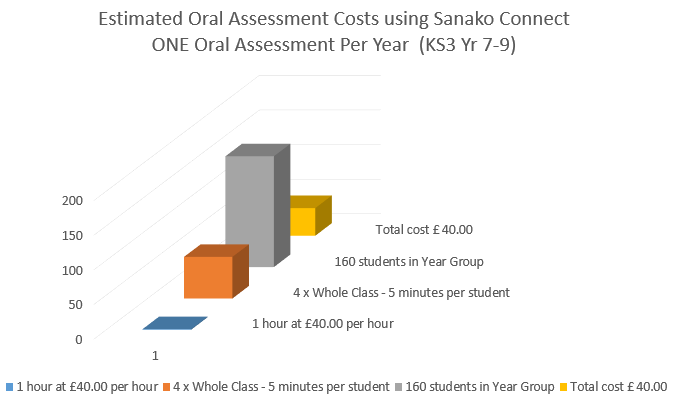How do we make time to assess the skill of speaking?
Whenever I run training for MFL teachers on how to develop students’ speaking skills, one of their biggest concerns is how to assess the skill of speaking, which is, and will continue to be with the new 2024 GCSE, worth 25% of the final marks.
How should speaking be assessed?
We need to find a way to assess students’ speaking individually, so that the teacher can provide accurate, specific feedback individually to each student. We know that students are eventually preparing for a GCSE, which will involve general conversation questions, a role play and a discussion about a photo card, and from 2026 a ‘reading aloud’ activity, which will assess their phonics knowledge. It seems sensible, therefore, to give students in KS3 similar types of assessments, as this will also mean that when they come to do their real GCSE speaking exam (which is the one they most fear!), they will be used to this assessment method and feel confident during it.
In the past I have planned speaking assessments like this:
Y7 part 1: simple general conversation questions
Y7 part 2: a simple description of a photo with some sentence starters provided
I would now add a series of unknown words with key phonemes/ pronunciation rules to say out loud, e.g. courant, c’est, excellent
Y8 as above, including conversation questions from themes covered in Y7 as well as Y8 themes. Also a photo description with less or no sentence starters, depending on the prior attainment of the student. Reading aloud would consist of some phrases rather than individual words.
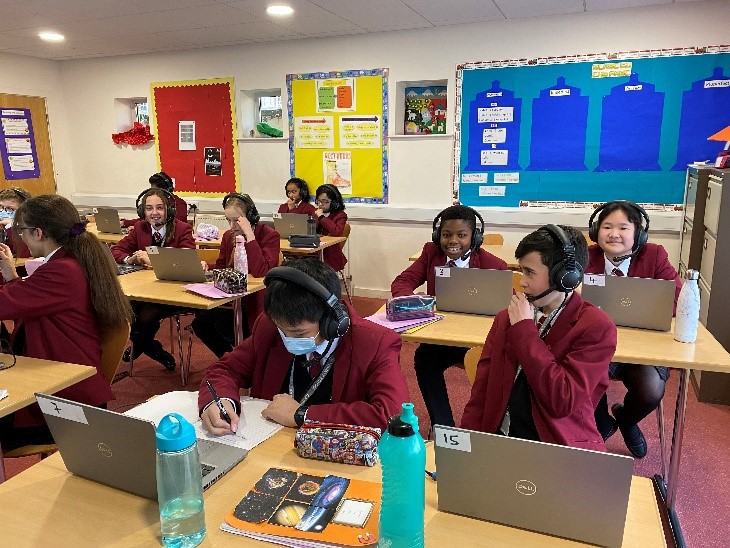
Y9 part 1: some general conversation questions including reference to the present, past and future.
Y9 part 2: a role play
Y10 part 1: at least 2 different activities in one assessment e.g. photo description and general conversation
Y10 part 2: a full speaking exam
Y11 mock: a full speaking exam
Hopefully you get the picture about how to build up students’ confidence and the teacher’s knowledge of students’ individual proficiency at speaking.
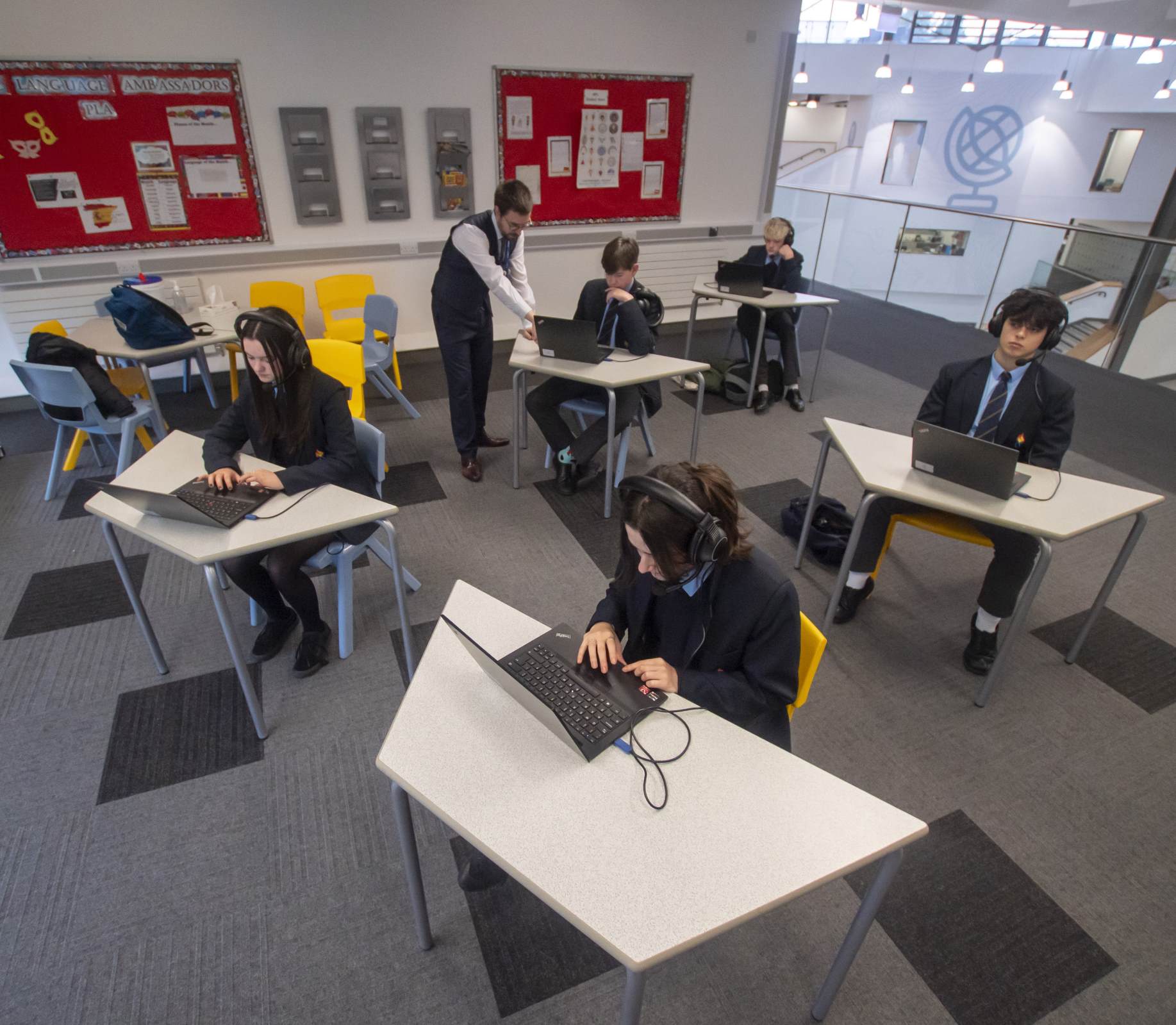
How often should we assess speaking skills?
Speaking is as important as the other three language learning skills, and some people would say it’s more important, as students often measure their efficacy in a language with how well they can speak it. We ideally need to be assessing students’ speaking skills formally from Y7 onwards, even if it is only once a year as a minimum expectation, but two is ideal. At KS4 we should aim for twice a year if possible.
But I don’t have enough time!
It’s worth looking at time-saving ways to assess students’ speaking skills. I love the new Sanako Connect software, which allows teachers to ask all the students the same question at the same time, which could be used for a role play, a photo description and general conversation.
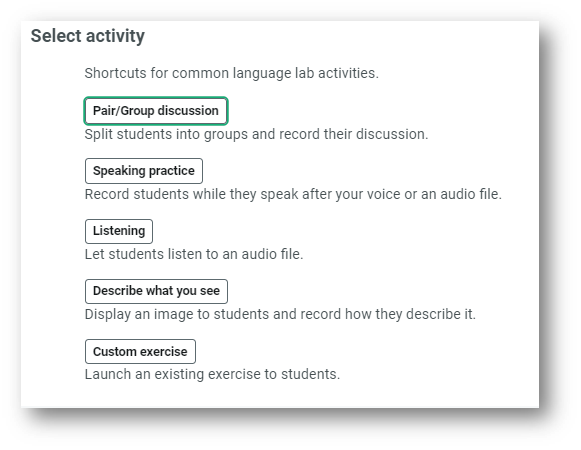
The teacher would select ‘speaking practice’ and chose the teacher as the audio source.
Then the teacher starts to ‘broadcast’ by saying each question or part of the role play. If it’s a photo description, the teacher can ‘launch’ that photo so it appears of the student’s screen.
Students record their own individual answers onto their device (the teacher would leave an appropriate amount of time for all students to record themselves) and then the teacher clicks ‘collect student submissions’ and then receives every student’s assessment recording, and can mark it individually. You would chose the ‘speaking practice’ option from the list here, and at the end ‘collect all student submissions’

What about feedback?
The teacher then marks the assessment and can either type in some feedback (or copy and paste it from elsewhere) or record some oral feedback, perhaps with examples of correct pronunciation.
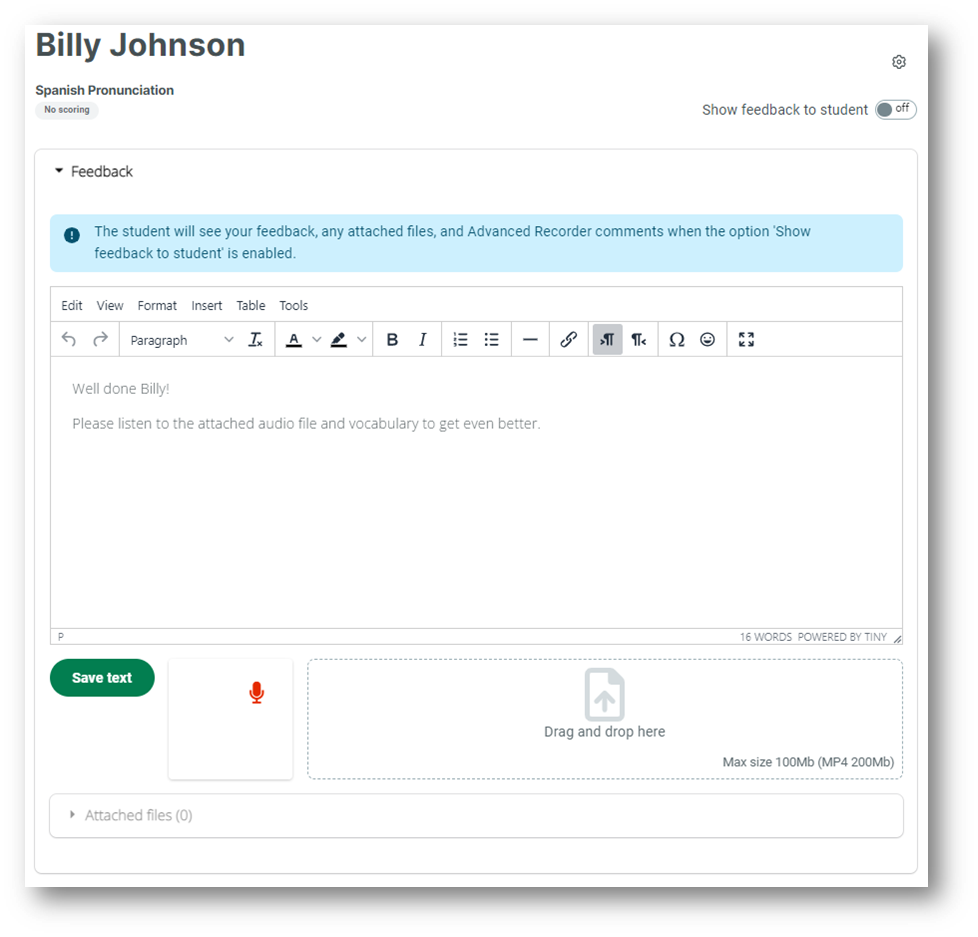
The cost of your time
Having been a headteacher for the last few years, I often think about the costs of teacher’s time and how this very precious resource can best be used.
If you were to take 5 minutes at KS3 with every student you teach just ONCE a year, it would take 13.3 hours of lesson time (assuming 5 classes of KS3 students). Twice a year it would be 26.6 hours.
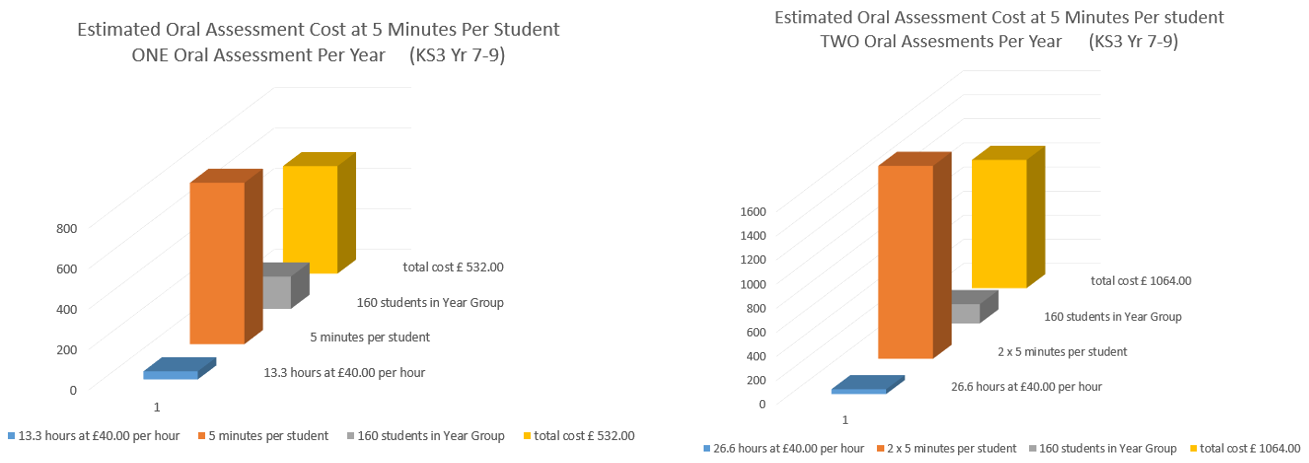
If you were to take 10 minutes per student at KS3 to assess them twice a year (assuming 2 classes of 20 KS4 students, but you may have more), this would also take 13.3 hours.
Assuming teachers’ time is costed at £40 an hour (and that doesn’t take into account pension and National insurance, which would add 25% on top), which is equivalent to average supply costs, for an average teacher, the cost of running speaking assessments with your classes would be £1,064 per year (based on just one assessment a year in KS3).
You can calculate how much that costs for your whole department based on how many teachers you have. Therefore, being able to do the speaking assessment, using the Sanako Connect software, with all students at the same time will save you a huge amount of time and money!
